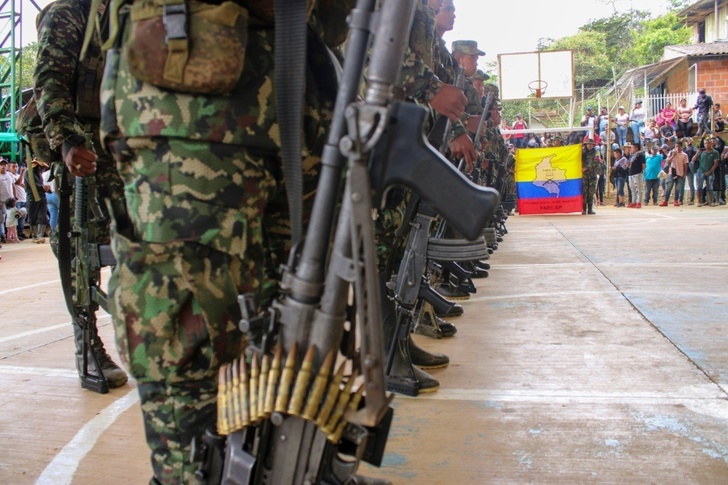A group of armed renegades who refused to sign a 2016 peace accord in Colombia have declared a unilateral ceasefire until the new year, the country's peace commissioner tweeted Saturday.
The dissidents of the Revolutionary Armed Forces of Colombia (FARC) had refused to lay down their arms alongside their comrades six years ago, when the fearsome rebel army signed the deal with Bogota to end more than five decades of conflict.
They have continued to battle government forces, and divided into various factions. The Indepaz think tank said they total around 5,200 rebels.
The news that one of the main factions would temporarily lay down their arms came days after the country's last recognized rebel group, the powerful National Liberation Army (ELN), also announced a truce as they conduct peace negotiations in Caracas, Venezuela.
Both organizations pledged to cease attacks against security forces until January 2.
According to Colombian President Gustavo Petro, other FARC dissidents as well as paramilitaries in the Sierra Nevada de Santa Marta in the north, and gangs in the port of Buenaventura, the most important port on the Pacific, have also declared a ceasefire.
"We hope that real peace processes will be consolidated," Petro wrote on Twitter after the announcement.
Colombia has suffered more than 50 years of armed conflict between the state and various groups of left-wing guerrillas, right-wing paramilitaries and drug traffickers.
When he took power in August, Petro, the country's first leftist president, vowed to negotiate with all Colombian armed groups as part of his "total peace" policy. There are currently around 90 political and criminal groups operating in the country, according to Indepaz.
Petro and aides have met with leaders of the two main factions of FARC dissidents with an eye to setting up peace talks.
After the peace deal, FARC itself became a political party which has a guaranteed small number of seats in Congress.
das/ad/st/des
© Agence France-Presse
Your content is great. However, if any of the content contained herein violates any rights of yours, including those of copyright, please contact us immediately by e-mail at media[@]kissrpr.com.
Source: Story.KISSPR.com

